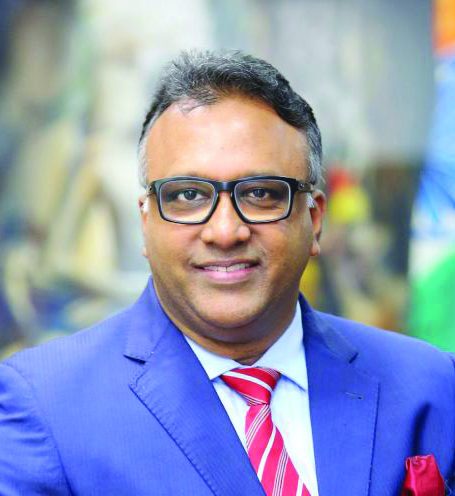Building a globally respected legal system by 2047
– An alumnus of Delhi, Oxford and Harvard Universities, Prof. C. Raj Kumar is founding Vice Chancellor of O.P. Jindal Global University, Sonipat
Law ought to become a foundational course of study in all disciplines — from engineering to medicine, from liberal arts to humanities, including the wider gamut of social sciences

As India embarks on the journey of 100 years of freedom from 1947 to 2047, a very important focus area is legal education and development of the legal profession. There are five major challenges, which need to urgently be addressed to bring the legal system, notorious for prolixity and delay, back on track.
- Addressing the mediocrity of law schools. We have 1,700 law schools in India. The Bar Council of India (BCI) has recognised the need for urgent reform in legal education. We are producing almost 1,00,000 lawyers every year. The speed and scale at which we are certifying law graduates is poorly matched with the quality of education, training, capacity building and career opportunities available to law students. We need to embrace the idea of democratisation of legal education by ensuring minimum standards of excellence in every law school, regardless of its private or public status or its rural or urban institutional presence.
- Preparing the future of the legal profession. The institutionalised mediocrity prevalent in many law schools has a direct and corollary impact on the legal profession. The legal profession unfortunately is marred by a large number of poorly educated and inadequately trained lawyers who practice law. Their own plight is unfortunately bordering on impoverishment, with no vision or imagination for participating in the effort to build a world-class legal system for India. Our aspiration for the India of 2047 ought to be based upon a reimagination of the legal profession. There is critical need for building endurance in the legal profession as lawyers are important voices of civil society. Their contribution to the legal profession will strengthen and improve the functioning of democratic institutions.
- Improving the selection of judges. Significant attention has been given to the selection of judges in high courts and the Supreme Court of India. But little attention is paid to the development of the justice system in its entirety, which to a large extent depends upon the qualifications, competence, commitment and integrity of judges in the lower courts. As of May 2022, India had a sanctioned strength of 25,628 judges. But the number of working judges is only 23,790 of which 34 are in the Supreme Court; 1,079 in the high courts and 22,677 in subordinate courts. We will not be able to recruit good judges without reforming legal education. Dramatic changes in law, social expectations of the justice delivery system, advancements in science and technology and new developments in the fields of public and private law require a new and imaginative approach to legal education for competent judges of the future.
- Inspiring young people to study law. As a society, we need to recognise the role and importance of lawyers and inspire young people across the country to study law. Pursuit of the study of law should be undertaken with a view to building an enlightened citizenry with a higher degree of civic consciousness for achieving responsible citizenship. Law ought to become a foundational course of study in all disciplines from engineering to medicine; from liberal arts to humanities, including the wider gamut of social sciences. This will also help achieve the objective of NEP to break down barriers of knowledge and promote interdisciplinary and multidisciplinary learning in our education ecosystem.
- Recognising the role of public interest in law. Law and legal institutions are involved in building the social structure and norms of society. They are also involved in establishing rules and regulations for governing the relationship between state, private individuals and society at large. The next 25 years of our effort to infuse these values into legal education will shape the future of the legal profession. The pursuit of public interest in law should be differentiated from public interest lawyering. Public interest is about the pursuit of common good and ought to be undertaken in both public law and private contexts.
The Way Forward: continuing legal education for lawyers and judges. One of the most neglected aspects of legal education and profession is near absence of any serious effort to invest in continuing education of lawyers. There is urgent need for a National Lawyers’ Academy and State Lawyers’ Academy that will focus on training and capacity building of qualified lawyers. This should be given the highest priority by both the Central and state governments. The unfortunate reality today is that we have more than 50 million cases pending in India’s courts. This despite the fact that lawyers and judges across the board work very hard and fulfill their responsibilities beyond the call of duty.
Therefore, we need to address the systemic barriers and institutional sclerosis that has crept into legal education and the legal profession that has made continuing legal education a non-serious, non-academic endeavour. Law schools ought to become centres of training and capacity building for lawyers and judges making use of their competence in higher legal education and research, their mastery over specialised branches of law, and access to digital and disruptive technologies. This will help in the ultimate transformation of the legal profession in India to ensure excellence, endurance and eminence by 2047.
Also read: OP Jindal Global University: Rising star of India’s most International University

















Add comment